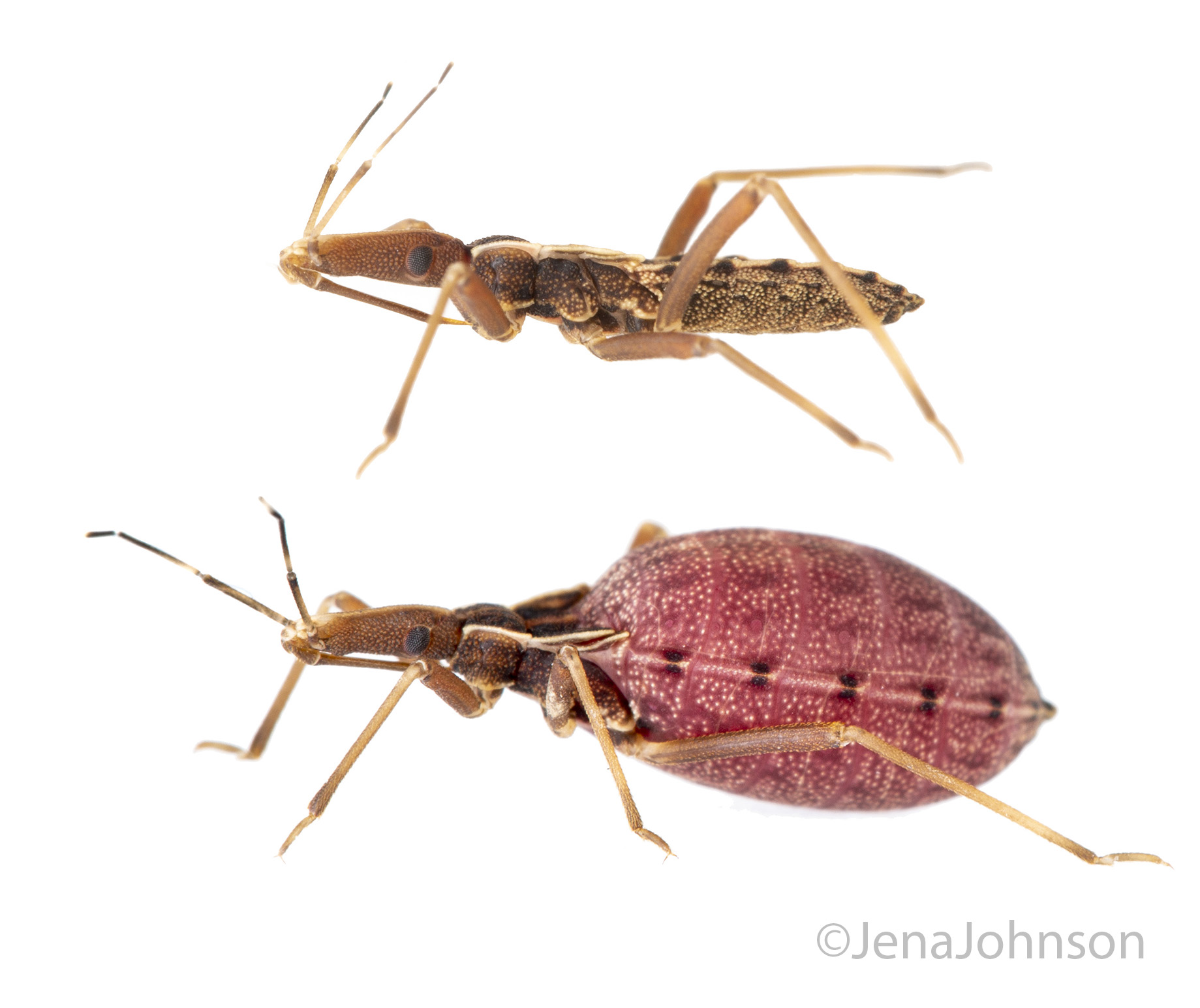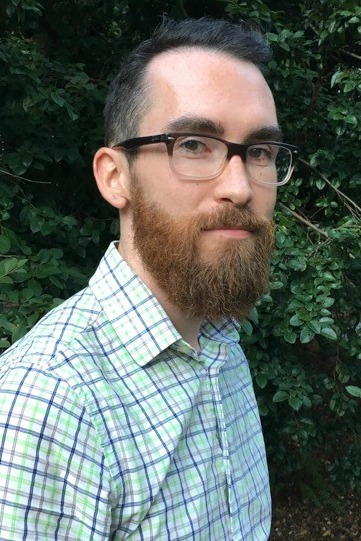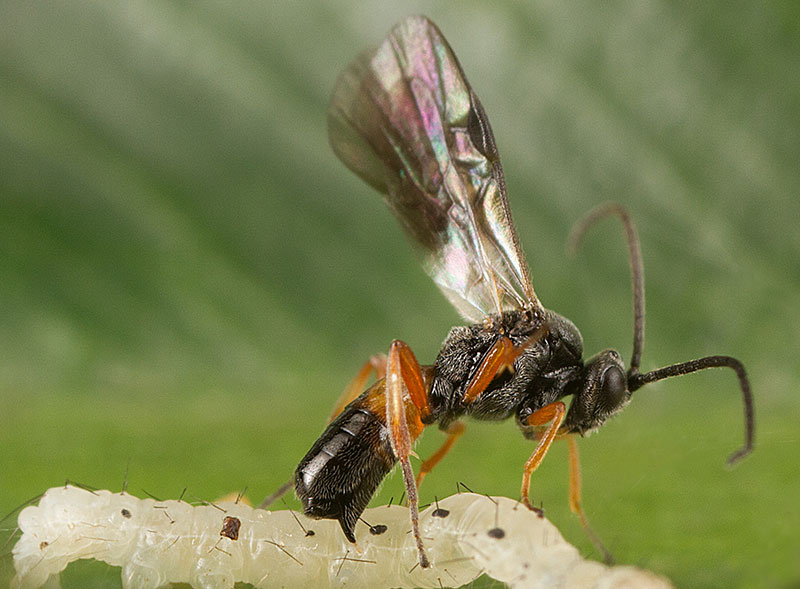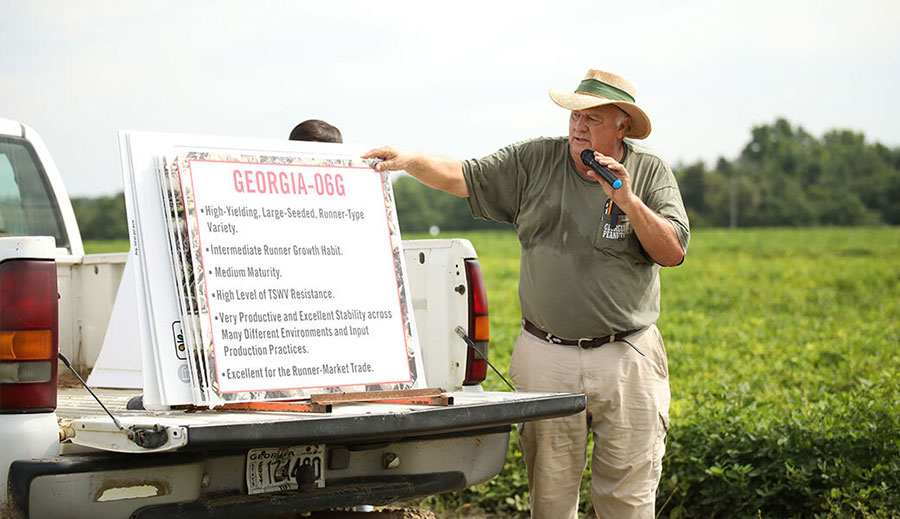
Kevin Vogel, an assistant professor in the University of Georgia Department of Entomology, has received a prestigious Faculty Early Career Development (CAREER) Program award from the National Science Foundation. The award supports early-career faculty who have the potential to serve as academic role models in research and education and to lead advances in the mission of their department or organization.
In the modern world where infinite amounts of information are readily available, it may seem incredible that there are still unknowns in nature, but it can take an entire career to understand those mysteries, said Vogel.
As an entomologist, that quest pulls him into the innermost workings of a small yet deadly insect — the kissing bug, formally known as the Triatomine bug. While present in North America, this predominantly equatorial pest is the primary vector of Chagas disease (Trypanosoma cruzi), a parasitic infection responsible for more than 10,000 deaths each year worldwide. The Centers for Disease Control and Prevention estimates that as many as 8 million people in Central and South America have Chagas disease, which, if left untreated, can cause lifelong complications and eventually death.
Supported by the more than $1 million CAREER grant, Vogel and his team in the College of Agricultural and Environmental Sciences will spend the next five years building upon the still-limited body of research regarding the symbiotic relationship between the kissing bug species, Rhodnius prolixus, and a highly specified bacterium, Rhodococcus rhodnii, that resides in their gut.
“Plants and animals often depend on interactions with microorganisms such as bacteria, which provide vital nutrients to the host that are deficient in their diet,” he explained. “We call those bacteria ‘symbionts,’ or organisms that have a mutually beneficial relationship with their host.”
For all exclusively blood-feeding insects, blood is — surprisingly — not a complete source of nutrition for survival. Research suggests insects rely on symbionts to provide the B vitamins they need to survive, Vogel said.
“The cool thing is that, in all other blood-feeding insects, their symbiotic bacteria are all extremely, anciently associated by hundreds of millions of years and live inside of the insect in special cells that are transmitted from one generation to the next,” Vogel explained.

Kissing bugs, he said, are unique because they are completely sterile when they are born and have to acquire the symbiotic bacteria from the environment, which is usually picked up from interacting with other kissing bugs. Without it, the insects cannot grow and will die before ever reproducing.
“We want to know what it is about this specific bacterium, R. rhodnii, that makes it such a good symbiont of kissing bugs,” said Vogel. “The beautiful thing about this system of research is that, because the insects are sterile, we can culture the bacteria outside of the host, then genetically manipulate it by turning on or silencing various genes. When we introduce the modified bacteria into the insect’s gut, we can observe the effect it has on various biological processes.”
The CAREER award prioritizes mentorship, so Vogel has partnered with Georgia Tech’s Georgia Intern-Fellowships for Teachers summer program to bring local high school teachers into his lab to design and participate in collaborative research projects. Through the paid internship, teachers and select top-performing students will work with Vogel and his team to develop curricula that will be incorporated during the school year.
Vogel said the value of real-world training in a lab setting cannot be overstated. “Teachers and students will conduct real research projects that produce real results,” he added.
“Probably one of the most exciting parts of the grant is our commitment to designing an educational board game that teaches the basics of symbiosis using insects as a model,” said Vogel.
The game will require players to mix and match insects with various symbionts to determine the effects of those combinations. It will include material to help incorporate the game into lesson plans for middle school through undergraduate biology curricula.
Vogel said the long-term goal is to understand how all the parts work together and how they ultimately shape the biology of Chagas disease. As someone who does basic research for a living, he knows that each piece of foundational research must first be understood before developing real-world applications.
“It’s hard not to look forward. I’m always wondering what the implications are for future research and how it might be studied in the applied sciences. That’s kind of what drives my continued interest in projects and collaborations,” he said.
Vogel hopes the findings of his CAREER award research program will enhance a collaborative project he is involved in with researchers from the UGA Center for Tropical and Emerging Global Diseases to better understand how Chagas disease spreads.






